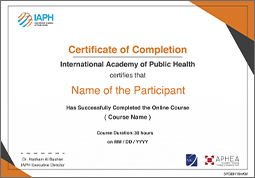Health economics
Description
The goal of this module is to inform the decision-makers in the health care system, planners, doctors, and managers, about the principles of health economics and to train them to use analytical methods of economic science.
They will use these methods for solving practical problems they are facing in everyday work - that includes knowledge and skills regarding how to allocate resources in the health care system, how to plan the development of the service, how to evaluate its work, how to set priorities among services and programs, how to provide financial sustainability of the health care system, and how to regulate the private practice. The objective of this Module is to provide scholars with the economic perspective of health care.
Learning Outcomes
- Recognize the basic principles of health economics, as well as basic microeconomic theory of supply and demand
- Distinguish between different techniques of economic evaluation: cost–minimization analysis, cost–effectiveness analysis, cost–utility analysis, and cost–benefit analysis
- Understand the market mechanisms in health care systems
- Know how to measure and value costs and effects of health care interventions
- Demonstrate a basic knowledge of how economics applies to research projects on evaluation of care
- Understand managerial issues related to purchasing
- Introduction to Health Economics
- Demand Supply and the Price System
- Health Insurance
- Health Care Financing and Expenditure
- Principles of Costs and Costing
- Budgeting- Part 1
- Budgeting- Part 2
- Burden of Diseases
- Economic Evaluation of Healthcare Policy
- The Importance of a Multidisciplinary Approach
- Allocation of Resources Based on the Analysis of Marginal Costs
- Decentralization and Rationing of Healthcare
- Allocation of Scarce Resources
- The Role of Health Economics, Research and Planning

Duration:
30 Learning Hours
Accredited By:


Certificate

Are you interested in the course?
Get notified once the course is open by clicking on
Health economics
Thank you for registering your interest! We appreciate your enthusiasm for this course. As soon as it becomes available, we will reach out to you with all the details. Stay tuned!